Five ways to spend and waste less this Christmas
- Published
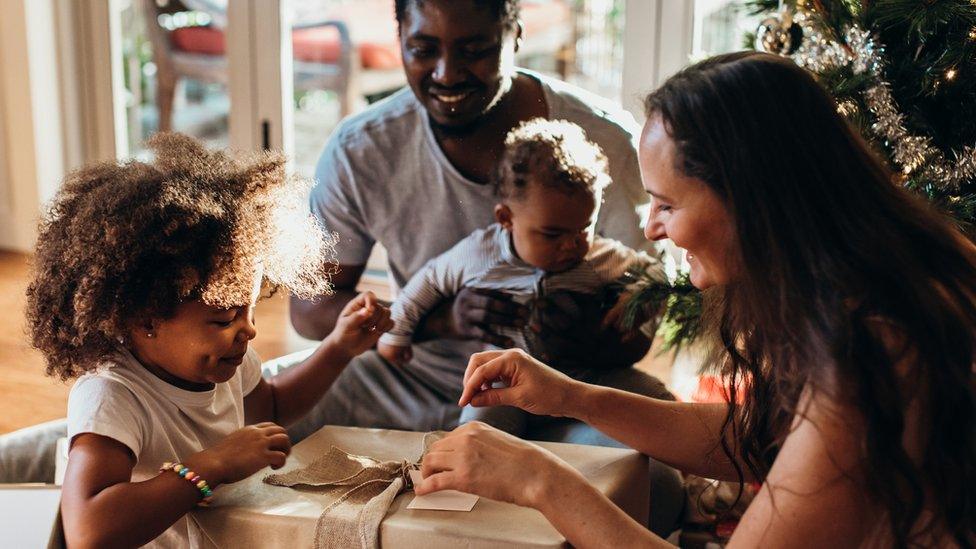
Christmas is a time to celebrate with family and friends but its true meaning can get lost in a blizzard of panic buying, over-consumption and waste. This year, as the cost-of-living crisis bites, we asked some experts for their tips on how to spend less, waste less and still enjoy the festivities.
1. Agree present buying in advance
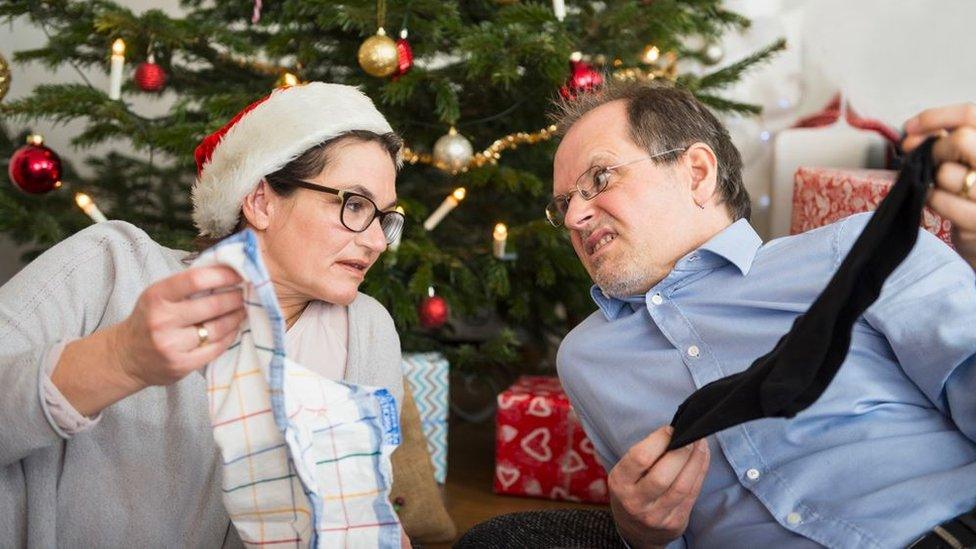
Christmas brings the dilemma of what to buy for that someone who always buys you something.
But Money Saving Expert Martin Lewis warns against what he describes as "tit-for-tat giving".
He told BBC 5 Live's Big Green Money Show that most of us have an "ever-growing list of extended family, friends and teachers that we feel obligated to buy for".
The consumer champion's top tip is to have those conversations early and to strike a "no unnecessary presents pact".
Carbon footprint expert Prof Mike Berners-Lee agrees.
"If you're feeling financial pressure this Christmas, just get the negotiations going with friends and family right now," he says.
Setting a spending limit or organising a Secret Santa can actually be more fun, he says.
"If you've kept to a limit of a pound or whatever, then nobody can lose. If you hate it, well it was only a piece of fun anyway."
He also advises that you keep receipts and be honest if you don't like a present.
"If my wife doesn't like what I've got her, she will immediately tell me. It maybe takes a bit of getting used to but it's better that way."
If you can afford it and want to spend more, vouchers can be a good way to ensure the recipient gets a gift they actually want, he adds.
2. Cut food waste and go plant-based
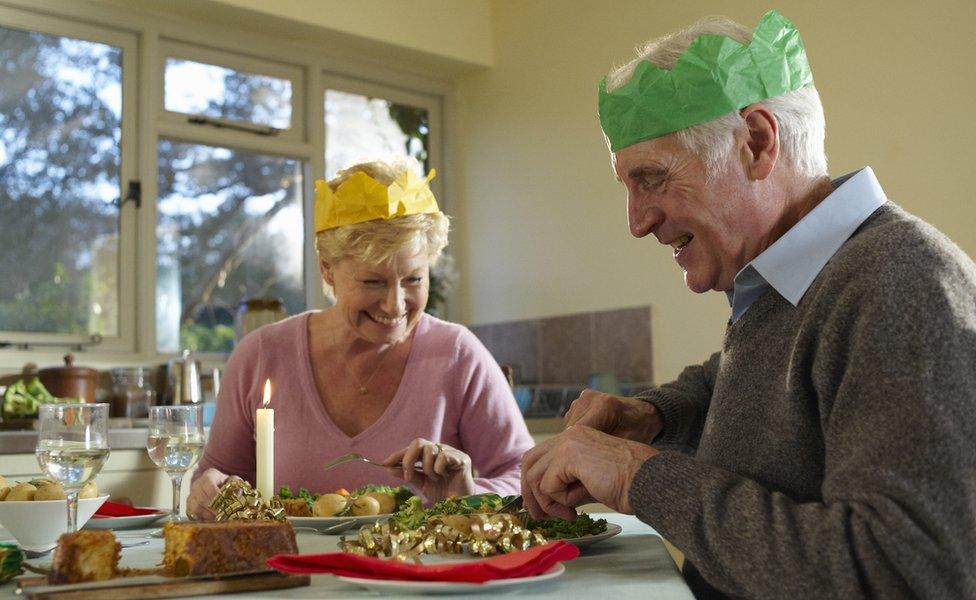
There is always at least one element of the festive feast that nobody likes but you always buy, or a treat that you were simply too full to eat.
Helen Bird from waste reduction charity Wrap says: "Food is one area where it's easy to economise without Christmas feasting being any less fun."
She suggests sticking to a list and only buying exactly what you need, then making sure leftovers are used up.
Figures from Wrap show 6.6 million tonnes of edible food is thrown away in the UK each year. Most of this comes from our homes, not supermarkets and restaurants.
"You can store food right up to midnight on any use-by date," Ms Bird says. "And your freezer is your friend before and after the big day."
To make Christmas dinner even greener, consider going plant-based.
"The science is really clear cut," says Prof Berners-Lee. "We've got to reduce the amount of meat and dairy in our diets by a long way. And with all the pressure on turkeys because of avian flu... this year surely is the year to give it a go."
3. Travel less but stay longer
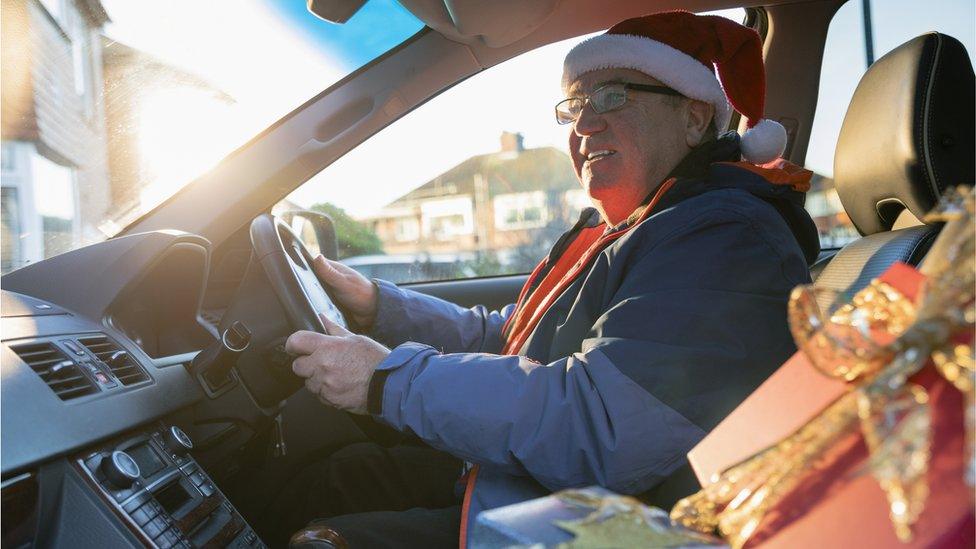
Driving home for Christmas can create a significant carbon footprint or "love miles" as Prof Berners-Lee puts it.
Some 27 million trips were made during the run-up to Christmas in 2021, according to the RAC.
Time with family is precious so take fewer journeys but spend longer with your loved ones when you do, says Prof Berners-Lee.
Taking a trip on public transport is a greener choice but not always an option. The RAC suggests car sharing to lower your Christmas mileage and travelling when the roads are quieter.
"Getting stuck in jams wastes valuable time, but if you're in a petrol or diesel car, you're also wasting fuel needlessly," says Rod Dennis from the RAC.
He suggests starting journeys early in the morning or later at night to beat the traffic.
4. Recycle and reuse
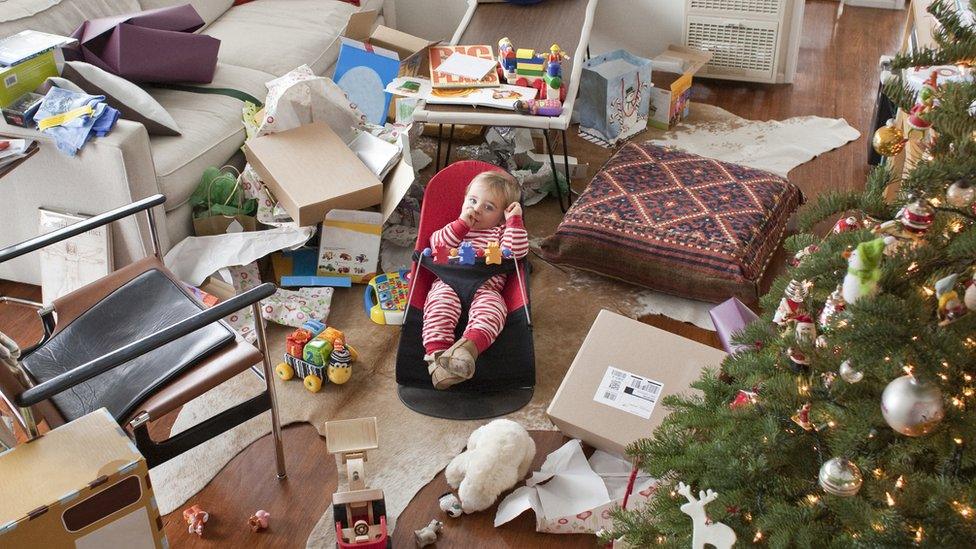
When Christmas Day is over you can find yourself surrounded by a mountain of wrapping paper and piles of packaging. A good way to check if wrapping paper is recyclable, according to Wrap, is the "scrunch test".
If the paper keeps its shape after being crumpled, it can go in the recycling, and there's no need to remove sticky tape. If it springs back into shape, it cannot be recycled.
But, if you can, avoid glittery paper, says Wrap's Helen Bird.
"Glitter wreaks havoc in the paper recycling," she says, "and when it comes to recycling Christmas cards, tear off any glittery sections."
Tinsel and baubles, whether glass or plastic, also cannot be recycled. It is greenest - and cheapest - to take good care of existing decorations and reuse them year after year.
5. Remember the meaning of Christmas
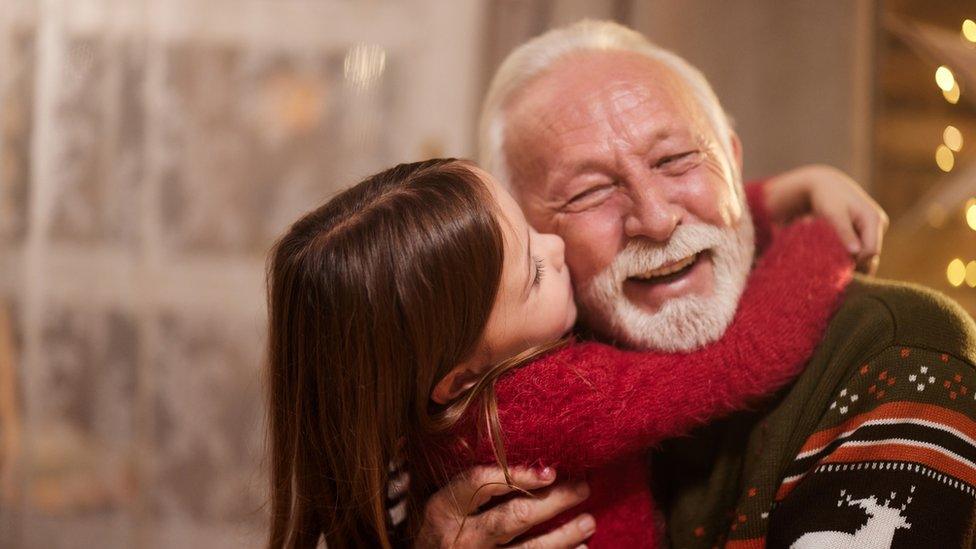
The Big Green Money Show spoke to parents and children in Warrington who all agreed the most important part of Christmas is not presents, but spending time with family.
"It's about having fun," says Prof Mike Berners-Lee. "It's about having a great time with the people you like and love the most. It's about relaxing and all of that can be done in a green way."


You can find BBC 5 Live's Big Green Money Show with Deborah Meaden and Felicity Hannah on BBC Sounds.